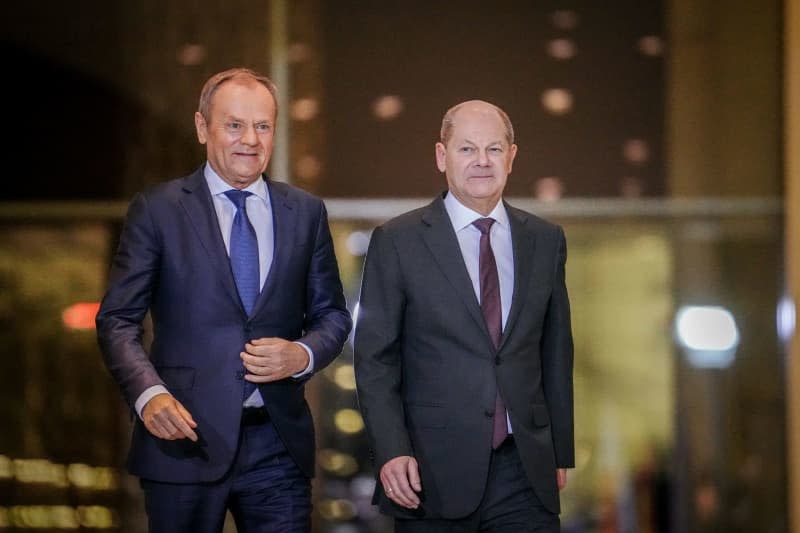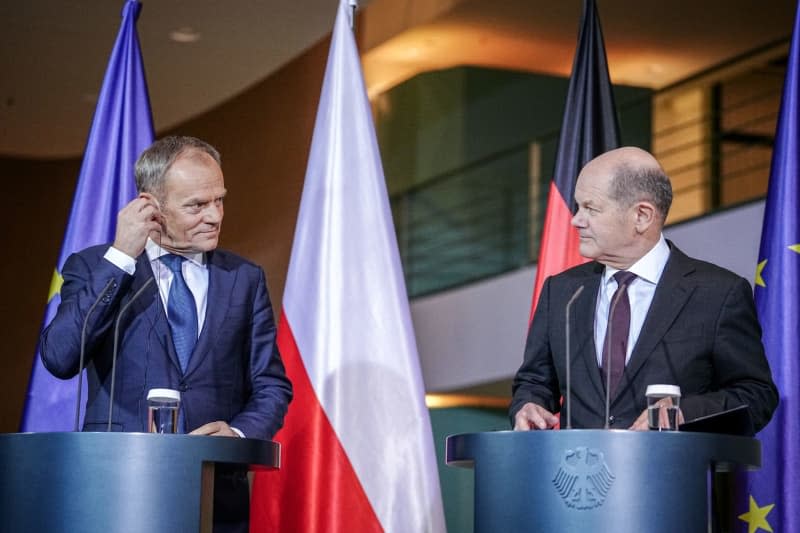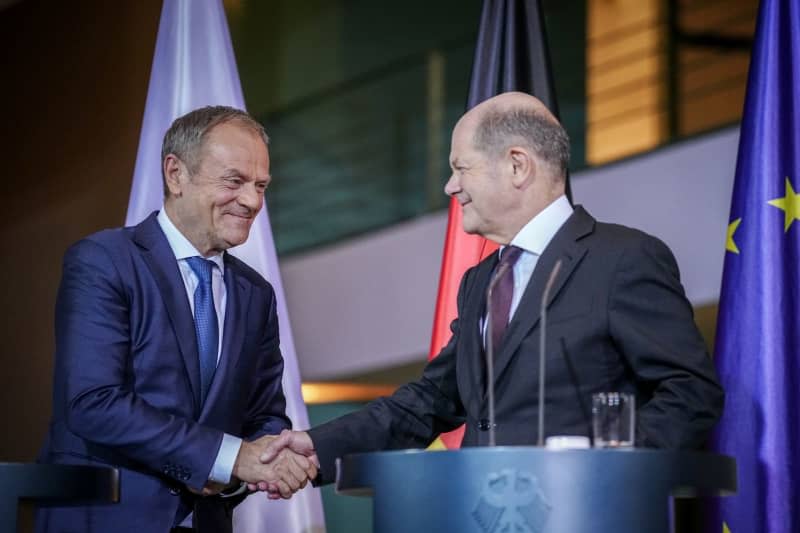New Polish leader wants to discuss WWII reparations with Berlin

- Oops!Something went wrong.Please try again later.
- Oops!Something went wrong.Please try again later.
The new government in Warsaw wants to start talks with Germany on how to deal with reparations for the damage Poland suffered during World War II.
In a formal and legal sense, the question of reparations has been closed for many years, Prime Minister Donald Tusk said on Monday in Berlin after his meeting with German Chancellor Olaf Scholz. "The question of moral, financial and material reparations has never been realized."
Tusk emphasized that, unlike his predecessors in the conservative nationalist Law and Justice (PiS) party government, he wanted to work with Chancellor Scholz "to look for forms of cooperation that will not be fatal to [bilateral] relations in the future."
It was not about building up a front of mutual resentment, Tusk said. Rather, this is an idea for further cooperation that serves security and could be beneficial for both nations.
The PiS government, which has since been voted out of office and was in office from 2015 to mid-December 2023, had demanded more than €1.3 trillion ($1.4 trillion) from the German government in October 2022 as compensation for the damage caused during World War II.
At the time, the PiS government had argued that Western countries such as France and the Netherlands had been treated better than Poland after the end of the war.
At the Potsdam Conference of 1945, the four victorious powers agreed that the Soviet Union would be compensated from the Soviet occupation zone in eastern Germany and that Poland would receive a share. By 1953, it is estimated that around 3,000 factories had been dismantled and additional goods from ongoing production had been removed. However, Warsaw pointed out that Poland had had to compensate for its share by supplying coal to the Soviet Union.
The German government, on the other hand, considers the reparations issue to be closed and refers to the official treaty on the foreign policy consequences of German unification, in which Poland was not involved.



